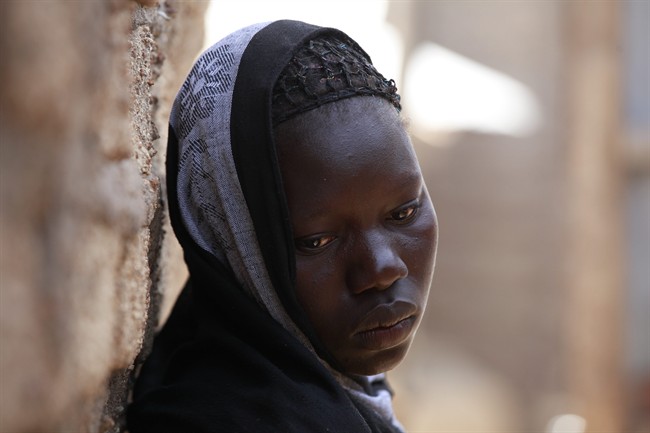The international community must pressure the Nigerian government to make the rescue of more than 200 kidnapped schoolgirls a priority and confront the country’s Islamic extremist insurgency, a leader of the movement to free the girls said Thursday.

Nigerian women’s rights advocate Saudatu Mahdi said there is a lack of “political will” and an inability of the government’s security and military forces to respond to the Boko Haram militants who captured the girls in April. She cited reports saying the government forces lack the right arms and ammunition and capabilities to confront the insurgents.
Mahdi, one of the leaders of the BringBackOurGirls movement, said 276 girls were abducted, 57 escaped, 219 are in captivity and “zero have been rescued.”
Even after a government fact-finding mission reported that over 200 girls were still missing, “the right pressure to compel action by our government is still not yet yielded,” she said.
“We ask the international community to pressure the Nigerian government and compel the right action to bring back the 219 girls still in custody and confront the insurgency as a real threat to our development and our unity as a nation,” Mahdi said.
She spoke at a news conference at the U.N. to present a report by Watchlist on Children and Armed Conflict, which found grave violations against children in northeastern Nigeria during a six-week research mission between March and May. Watchlist is an international network of human rights and humanitarian organizations established in 2001 to defend the rights of children caught in conflict.
The report recommends steps that the federal and state governments in the north should take to better protect children and ensure that they can go to school safely.
“While the abduction of over 200 girls in Chibok, Borno State, has shed some light on how children are affected by the conflict in the northeast, most abuses are still poorly documented, understood, and addressed by key actors,” said Watchlist researcher Janine Morna.
The report expresses concern at the forced recruitment of children to spy and sometimes to fight by Boko Haram and by the Civilian Joint Task Force, a self-defence militia formed in mid-2013 in Borno’s capital of Maiduguri.
“Children as young as 13 are being recruited by both sides of the conflict and have nowhere to turn,” Morna said. “The government of Nigeria should denounce the recruitment of children by all armed groups, take immediate steps to release child soldiers in their custody, and develop procedures to transfer child soldiers to civilian actors.”
Watchlist also researched attacks on schools – almost all by Boko Haram – and said its media survey found that at least 414 students, teachers or civilians were killed, injured or abducted on school premises between January 2012 and July 2014.
“Continuous attacks on schools have devastated education in the region, creating a climate of fear for students and teachers, and leading to school closures,” Morna said.
Justin van Fleet, chief of staff to U.N. Special Envoy for Global Education Gordon Brown, said Nigeria has the largest number of out-of-school children in the world – 10.5 million – and 60 per cent are in the north. He said there are three boys in school for every girl in the north, which is mainly Muslim.
A Safe Schools Initiative, launched on May 7, aims to help protect schools and students from attack, he said.

Comments